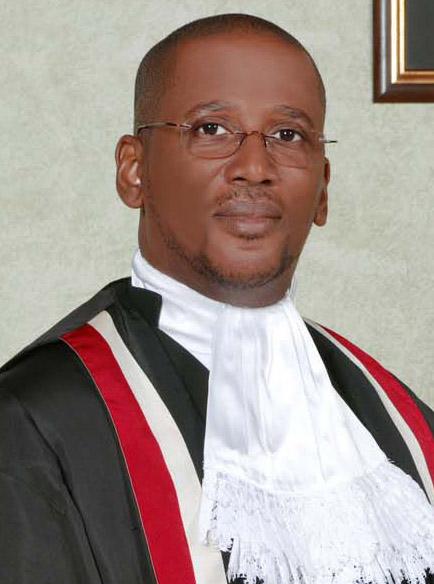(Trinidad Guardian) Hundreds of prisoners on remand for murder are now free to apply to judicial officers to consider bail for them.
Delivering an oral decision, yesterday afternoon, Chief Justice Ivor Archie and Appellate Judges Mira Dean-Armorer and Malcolm Holdip dismissed an application from the Office of the Attorney General to continue to stay its recent judgment on the constitutionality of Section 5(1) of the Bail Act of 1994, which previously precluded judicial officers from considering bail for persons accused of murder.
Despite the Appeal Court’s ruling on the suspension of the judgement, the effects of the landmark case can still possibly be put on hold as the AG’s Office is expected to apply to the United Kingdom-based Privy Council for a similar stay, pending the determination of its final appeal.
In its ruling, the appeal panel agreed with lawyers representing former murder accused Akilli Charles, who brought the substantive constitutional challenge, and the Law Association, who was joined as an interested party, who both claimed that the Appeal Court did not have the jurisdiction to grant a stay following its ruling on the constitutionality of the legislation.
CJ Archie noted that the court only had the jurisdiction to grant a stay if the case dealt with monetary compensation or ordering a party to perform a task but not if it concerned declarations seeking to protect fundamental constitutional rights, as in Charles’ case.
He also stated that a stay could have been granted if it was necessary to give Parliament time to correct the legislative issue.
“There is no legislative vacuum here, as the grant of bail is still covered by the Bail Act,” CJ Archie said.
Addressing concerns raised by the AG’s Office over the ability of the Office of the Director of Public Prosecutions and the T&T Police Service (TTPS) to effectively and efficiently respond to hundreds of bail applications, CJ Archie expressed confidence that judicial officers would give the parties time to adequately respond to such applications.
“Even if 1,000 applications are made, they obviously cannot be heard at the same time,” CJ Archie said.
In his submissions, Senior Counsel Fyard Hosein, who led the legal team for the AG’s Office, suggested that the court had the power to widen its jurisdiction to address the issue.
“This is a situation where you can extend the boundaries of the law,” Hosein said.
He claimed that by applying for the stay, his client was seeking to protect taxpayers, as additional resources would be required to respond to the multitude of bail applications that are expected to be filed.
“I am not asking to reduce the rights given to citizens but we must be careful to protect the integrity of this sovereign democratic state,” Hosein said.
Responding to the submissions, Charles’ lawyer Anand Ramlogan, SC, pointed out that only a small percentage of those who apply may eventually be granted bail and would be able to access it.
“No one who poses a threat to society should ever get bail,” Ramlogan said, as he noted that the DPP’s Office still had the right to apply if it is concerned by an individual being granted bail.
Referring to Hosein’s concerns over accused persons absconding if granted bail, as they still face the possibility of the death penalty, Ramlogan noted that the last State execution took place in 1999.
“In reality, it is a term of life imprisonment after five years in prison,” he said.
Ramlogan also dismissed claims that the Electronic Monitoring Unit of the Ministry of National Security could not provide electronic monitoring for persons who may benefit due to limited financial resources. He noted that while the device costs $12,000, the approximate annual cost to the State in keeping a prisoner on remand is $25,000.
“You would save $13,000 in the first year and $25,000 a year thereafter,” Ramlogan said, as he noted the State could not use the excuse of inadequate resources to excuse a breach of constitutional rights.
Presenting submissions on behalf of the association, attorney Kiel Taklalsingh expressed confidence that the Judiciary would be able to deal with the expected influx of applications through robust case management.
“This is not Armageddon. It is putting something in the hands of the best body to deal with it,” he said.
In its substantive judgement in Charles’ case, the appeal panel ruled that the segment of the Bail Act was not reasonably justifiable in a society that is concerned about the rights and freedoms of the individual.
“The unanimous view of this panel is that, by removing the jurisdiction of High Court Judges to grant bail to persons charged with murder, section 5 has trespassed on a core judicial function,” CJ Archie, who wrote the judgement, said.
The panel also noted that the constitutional savings clause, which insulates pre-republican legislation from review by a court, did not apply as there was no general prohibition to grant bail to persons charged with murder in 1976.
Charles was also represented by Ganesh Saroop and Jayanti Lutchmedial, while Diane Katwaroo, Tenille Ramkissoon and Amirah Rahaman appeared alongside Hosein for the State. The association was also represented by Douglas Mendes, SC, Aaron Mahabir and Kavita Roop-Boodoo.





